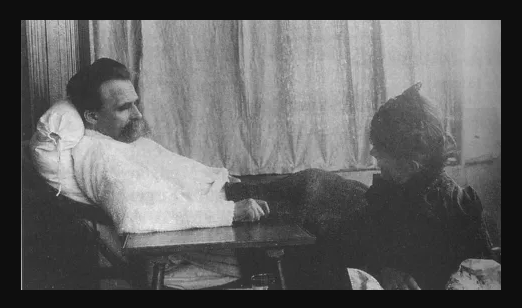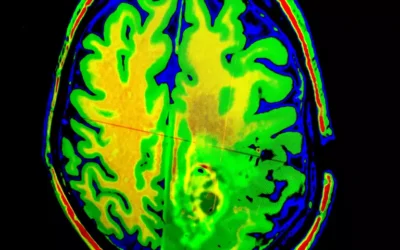Who was Nietzsche?

Friedrich Nietzsche (1844-1900), the groundbreaking German philosopher, has left an indelible mark on the landscape of modern psychology and psychotherapy. His revolutionary ideas about the nature of the self, the role of unconscious drives, the importance of embracing life’s challenges, and the potential for personal transformation have profoundly influenced various schools of psychological thought, particularly depth psychology and existential therapy. Nietzsche’s philosophy has also provided valuable insights into the understanding and treatment of psychological trauma, offering a framework for conceptualizing the impact of overwhelming experiences on the psyche and the possibilities for post-traumatic growth.
In this comprehensive essay, we will embark on a deep exploration of Nietzsche’s key philosophical contributions and their far-reaching implications for the field of psychology. We will examine the ways in which his ideas have shaped the development of Jungian psychology and other therapeutic approaches, and consider their relevance to the conceptualization and treatment of trauma. By engaging with Nietzsche’s thought, we aim to shed light on the enduring significance of his work for the understanding of the human psyche and the practice of psychotherapy in the contemporary world.
2. Nietzsche’s Philosophy of the Self and the Will to Power
2.1. The Dynamic and Multifaceted Nature of the Psyche
At the heart of Nietzsche’s philosophy lies a radical reconceptualization of the self, challenging traditional notions of the psyche as a unitary, rational, and self-transparent entity. In contrast to the Cartesian view of the self as a thinking substance, Nietzsche posits a dynamic and multifaceted conception of the psyche, composed of a complex interplay of competing drives, instincts, and unconscious forces. He argues that the self is not a fixed essence but a fluid and ever-evolving process, shaped by the constant struggle and negotiation between these various psychological elements.
This view of the psyche as a battleground of opposing forces has had a profound influence on the development of depth psychology, particularly the work of Sigmund Freud and Carl Jung. Freud’s topographical model of the psyche, with its division into the conscious, preconscious, and unconscious realms, and his later structural model, comprising the id, ego, and superego, bear the imprint of Nietzschean thought. Similarly, Jung’s conception of the psyche as a dynamic system of interacting archetypes, complexes, and psychological functions reflects Nietzsche’s emphasis on the multiplicity and complexity of the self.
2.2. The Will to Power as the Fundamental Drive
Central to Nietzsche’s understanding of the psyche is the concept of the “will to power,” which he identifies as the fundamental driving force behind all human behavior and psychological processes. The will to power is not a mere instinct for survival or a desire for domination over others, but rather a creative and transformative impulse, a striving for growth, self-overcoming, and the realization of one’s highest potential. Nietzsche argues that all psychological phenomena, from the most basic sensations and emotions to the most sublime artistic and philosophical achievements, can be understood as expressions of this primordial will to power.
The concept of the will to power has had a significant impact on the development of various psychological theories and therapeutic approaches. In Freudian psychoanalysis, the will to power is echoed in the notion of the libido, the psychosexual energy that drives the development of the personality and the formation of attachments. In Jungian psychology, the will to power is reflected in the concept of individuation, the process of psychological growth and self-realization that involves the integration of unconscious elements into the conscious personality. In Adlerian psychology, the will to power is reframed as the striving for superiority, the basic motivation behind all human behavior and the key to understanding both healthy and neurotic development.
2.3. The Critique of the Notion of the Unified Self
Nietzsche’s emphasis on the dynamic and multifaceted nature of the psyche and the primacy of the will to power leads him to a radical critique of the notion of the unified self. He argues that the idea of a coherent, stable, and autonomous self is a fiction, an illusion created by the conscious mind to impose order and meaning on the chaotic flux of psychological experience. In reality, the self is a constantly shifting and evolving constellation of drives, affects, and perspectives, with no underlying unity or essence.
This critique of the unified self has had a profound influence on the development of postmodern and deconstructionist approaches to psychology and psychotherapy. Thinkers such as Jacques Lacan, Michel Foucault, and Gilles Deleuze have drawn on Nietzschean ideas to challenge the assumptions of traditional psychological models and to explore the ways in which the self is constituted through language, power relations, and social and cultural forces. In the realm of therapy, this perspective has led to a greater emphasis on the role of context, narrative, and interpersonal dynamics in shaping psychological experience, and to a more fluid and open-ended approach to the process of self-exploration and transformation.
3. The Apollonian and Dionysian Duality and the Role of Art in Psychic Integration
3.1. The Birth of Tragedy and the Psychological Significance of Greek Drama
In his early work, “The Birth of Tragedy” (1872), Nietzsche introduces the concept of the Apollonian and Dionysian as two complementary psychological principles that find their highest expression in the art of ancient Greek tragedy. According to Nietzsche, Greek drama emerged from the fusion of two distinct artistic impulses: the Apollonian, associated with the visual arts, and the Dionysian, associated with music and dance. The Apollonian represents the principle of form, measure, and individuation, while the Dionysian represents the principle of ecstasy, intoxication, and the dissolution of boundaries.
Nietzsche argues that the greatness of Greek tragedy lies in its ability to reconcile and integrate these two opposing psychological forces. Through the portrayal of mythical heroes and their struggles, the tragedians gave form and meaning to the chaotic and terrifying aspects of existence, while also affirming the primal vitality and power of the Dionysian spirit. In this way, Greek tragedy served a vital psychological function, providing a means of confronting and transcending the deepest fears and conflicts of the human psyche.
3.2. The Apollonian and Dionysian in Jungian Psychology
Nietzsche’s conception of the Apollonian and Dionysian duality has had a profound influence on the development of Jungian psychology. Jung himself acknowledged the importance of Nietzsche’s ideas in shaping his own understanding of the psyche, and he incorporated the Apollonian and Dionysian principles into his theory of psychological types. In Jungian terms, the Apollonian corresponds to the rational, thinking, and sensation functions, while the Dionysian corresponds to the irrational, feeling, and intuitive functions.
Jung also drew on Nietzsche’s insights into the psychological significance of art and myth in his own therapeutic approach. He believed that the process of individuation, the central goal of Jungian analysis, involves the integration of conscious and unconscious elements of the psyche, and that this integration can be facilitated through the engagement with symbolic and mythological material. By exploring the archetypes and imagery of dreams, fantasies, and creative works, individuals can tap into the transformative power of the unconscious and achieve a greater sense of wholeness and self-realization.
3.3. The Role of Art and Creative Expression in Psychotherapy
Nietzsche’s emphasis on the psychological significance of art and the importance of integrating opposing forces within the psyche has also had a significant impact on the development of expressive and creative therapies. These approaches, which include art therapy, music therapy, dance/movement therapy, and drama therapy, recognize the healing and transformative power of artistic expression and the role of creativity in the process of psychological growth and self-discovery.
In expressive therapies, the creative process itself is seen as a means of accessing and integrating unconscious material, resolving inner conflicts, and achieving a greater sense of unity and wholeness. By engaging in artistic activities such as painting, sculpting, making music, or embodying different roles and characters, individuals can explore and express their deepest feelings and experiences, and gain new insights into their own psyche and life story.
The Nietzschean perspective on art and psychology also highlights the importance of embracing and affirming the full range of human emotions and experiences, including those that may be painful, difficult, or socially unacceptable. By providing a safe and non-judgmental space for the expression of the shadow aspects of the self, expressive therapies can help individuals to confront and integrate the darker and more primal aspects of their nature, and to achieve a more authentic and vital sense of self.
4. The Concept of Ressentiment and Its Relevance to Psychotherapy
4.1. Ressentiment as a Psychological Phenomenon
In his later work, “On the Genealogy of Morality” (1887), Nietzsche introduces the concept of ressentiment as a key psychological phenomenon that underlies the formation of moral values and the development of certain personality types. Ressentiment, which can be roughly translated as “resentment” or “hostility,” refers to a complex emotional state characterized by feelings of powerlessness, envy, and a desire for revenge against those perceived as stronger, healthier, or more successful.
According to Nietzsche, ressentiment arises from a deep-seated sense of inadequacy and a frustrated will to power. When individuals feel unable to affirm their own strength and achieve their desired ends, they may turn against those who embody the qualities they lack, and seek to undermine or devalue them through moral judgments and condemnation. In this way, ressentiment gives rise to a distorted system of values that elevates weakness, suffering, and self-denial over strength, joy, and self-affirmation.
4.2. The Implications of Ressentiment for Psychotherapy
Nietzsche’s concept of ressentiment has important implications for the understanding and practice of psychotherapy. From a Nietzschean perspective, many forms of psychological distress and maladaptive behavior can be seen as manifestations of ressentiment, reflecting a deep-seated sense of powerlessness and a defensive denial of one’s own desires and potentials.
In working with clients who are struggling with issues of low self-esteem, chronic resentment, or self-defeating patterns of behavior, therapists may draw on Nietzsche’s insights to help them identify and overcome the underlying dynamics of ressentiment. This may involve exploring the client’s sense of inadequacy and frustration, and helping them to develop a more affirmative and empowered sense of self.
One key aspect of this process is the recognition and challenging of the distorted value systems that arise from ressentiment. Clients may be encouraged to examine the ways in which their moral judgments and self-evaluations reflect a denial of their own strength and vitality, and to develop a more life-affirming and self-enhancing perspective. This may involve learning to embrace and channel their own will to power in healthy and constructive ways, such as setting and pursuing meaningful goals, cultivating their talents and abilities, and forming authentic and mutually empowering relationships.
4.3. The Nietzschean Approach to Existential Challenges
Another important implication of Nietzsche’s thought for psychotherapy is his emphasis on the importance of confronting and embracing existential challenges as a means of personal growth and self-overcoming. Nietzsche believed that the greatest human achievements and the most profound experiences of meaning and fulfillment arise from the willingness to face and surmount the most difficult and painful aspects of existence, such as suffering, loss, and the awareness of one’s own mortality.
In the context of therapy, this perspective suggests the value of helping clients to confront and work through their deepest fears, anxieties, and existential concerns, rather than simply seeking to alleviate symptoms or provide comfort. By encouraging clients to embrace the challenges and uncertainties of life, and to take responsibility for creating their own values and meaning, therapists can support them in developing a more resilient, courageous, and authentic sense of self.
This approach is particularly relevant to existential and humanistic forms of therapy, which emphasize the importance of personal choice, responsibility, and the search for meaning in the face of life’s inherent difficulties. By drawing on Nietzsche’s insights into the transformative power of self-overcoming and the affirmation of life, these approaches can help clients to develop a greater sense of agency, purpose, and vitality, and to embrace the full range of their human potential.
5. The Relevance of Nietzschean Ideas to the Understanding and Treatment of Trauma
5.1. Trauma as a Shattering of the Self
Nietzsche’s philosophy offers a powerful lens through which to understand the nature and impact of psychological trauma. From a Nietzschean perspective, trauma can be seen as a profound disruption of the individual’s sense of self and their fundamental assumptions about the world. When faced with an overwhelming and life-threatening event, the psyche may be shattered, leaving the individual feeling powerless, vulnerable, and disconnected from their own identity and life story.
This shattering of the self can be understood in terms of Nietzsche’s critique of the notion of the unified self and his emphasis on the dynamic and multifaceted nature of the psyche. In the face of trauma, the fragile illusion of a coherent and stable self is broken, and the individual is confronted with the chaotic and terrifying reality of their own psychological multiplicity and fragmentation.
5.2. The Defensive Strategies of the Traumatized Psyche
In the aftermath of trauma, the psyche may resort to various defensive strategies in an attempt to cope with the overwhelming feelings of fear, helplessness, and disintegration. One common strategy is the adoption of a rigid and narrow identity, based on the denial and repression of the traumatic experience and the parts of the self that have been most deeply affected.
This defensive identity often takes the form of a victim mentality, characterized by feelings of powerlessness, resentment, and a distorted sense of moral superiority. In Nietzschean terms, this can be seen as a manifestation of ressentiment, a reactive and life-denying stance that seeks to negate the reality
5.3. The Transformative Potential of Trauma: Nietzsche and Post-Traumatic
Growth Despite the profound challenges posed by trauma, Nietzsche’s philosophy also points towards the possibility of growth and transformation in the aftermath of overwhelming experiences. His concept of the “will to power” suggests that even the most painful and difficult experiences can be embraced as opportunities for self-overcoming and the development of greater strength, resilience, and creativity.
From this perspective, trauma can be seen not only as a shattering of the self but also as a potential catalyst for the reconstruction of a more authentic and vital sense of identity. By confronting the existential challenges posed by trauma and working through the difficult emotions and memories associated with it, individuals may be able to tap into deeper sources of meaning, purpose, and value in their lives.
This idea of post-traumatic growth has been increasingly recognized in contemporary psychology and psychotherapy, with research suggesting that many individuals who experience trauma also report positive changes in their sense of self, their relationships with others, and their overall outlook on life. These changes can include increased self-awareness, greater compassion and empathy, a deepened appreciation for life, and a stronger sense of purpose and meaning.
Nietzsche’s philosophy provides a valuable framework for understanding the transformative potential of trauma and the processes involved in post-traumatic growth. His emphasis on the importance of embracing suffering, affirming life in the face of adversity, and continually striving for self-overcoming can inspire and guide individuals as they navigate the challenges of trauma recovery.
5.4. Nietzschean Approaches to Trauma Therapy
The insights of Nietzsche’s philosophy have important implications for the treatment of trauma in psychotherapy. While Nietzsche himself did not develop a specific therapeutic approach, his ideas have influenced various schools of thought and can inform the work of therapists from different orientations.
One key principle of a Nietzschean approach to trauma therapy is the emphasis on the individual’s capacity for self-transformation and the importance of affirming life in the face of suffering. Rather than seeking to eliminate or avoid painful experiences, a Nietzschean therapist would encourage clients to confront and work through their traumas, viewing them as opportunities for growth and self-overcoming.
This may involve helping clients to develop a sense of meaning and purpose in the aftermath of trauma, and to cultivate a more resilient and affirmative stance towards life. Techniques such as narrative therapy, which focuses on the stories individuals tell about their lives and the possibilities for re-authoring these stories, can be particularly useful in this regard.
Another important aspect of a Nietzschean approach to trauma therapy is the emphasis on the body and the role of somatic experiences in the healing process. Nietzsche’s philosophy highlights the importance of attending to the wisdom of the body and the ways in which psychological experiences are deeply rooted in our embodied existence.
Therapists working from this perspective may incorporate body-based interventions, such as somatic experiencing or sensorimotor psychotherapy, which focus on helping clients to process traumatic experiences through the body and to develop greater resilience and self-regulation. These approaches can be particularly helpful for individuals who have experienced complex or developmental trauma, which often has a profound impact on the nervous system and the body’s stress response.
A Nietzschean approach to trauma therapy would also emphasize the importance of creativity, self-expression, and the cultivation of a sense of play and lightness in the face of life’s challenges. Nietzsche’s philosophy celebrates the power of art, music, and dance as means of transcending suffering and affirming the beauty and richness of existence.
Therapists may draw on expressive arts therapies, such as art therapy, music therapy, or drama therapy, to help clients tap into their creative resources and find new ways of expressing and transforming their traumatic experiences. These approaches can be particularly useful for individuals who struggle with verbal processing or who find it difficult to put their experiences into words.
Finally, a Nietzschean approach to trauma therapy would attend to the social and cultural dimensions of trauma and the ways in which individual experiences are shaped by larger systems of power and oppression. Nietzsche’s critique of morality and his emphasis on the need for a “revaluation of all values” can inspire therapists to challenge dominant narratives and to support clients in developing a more critical and empowered stance towards the world.
This may involve incorporating elements of social justice-oriented approaches, such as liberation psychology or feminist therapy, which seek to address the root causes of trauma and to promote collective healing and transformation. By attending to the broader contexts in which trauma occurs and the ways in which individuals are impacted by systemic inequalities, therapists can help clients to develop a more comprehensive understanding of their experiences and to work towards both personal and social change.
6. Interpreting Nietzsche: The Complexity and Ambiguity of His Thought
6.1. The Challenges of Reading Nietzsche
Friedrich Nietzsche’s philosophy is notoriously complex, multifaceted, and open to a wide range of interpretations. His writing style, which often employs irony, metaphor, and hyperbole, can make it difficult to discern his true intentions and beliefs. Moreover, Nietzsche’s thought evolved significantly over the course of his intellectual career, and his later works often challenge or contradict the ideas expressed in his earlier writings.
This complexity and ambiguity have led to a great deal of debate and disagreement among scholars and readers of Nietzsche. Some see him as a profound and revolutionary thinker who challenged the foundations of Western philosophy and morality, while others view him as a dangerous and misguided figure whose ideas have been appropriated by various political and ideological movements, including Nazism and fascism.
6.2. The Question of Nietzsche’s Authorial Intentions
One of the central questions in Nietzsche scholarship concerns the nature of his authorial intentions and the extent to which his writings should be taken at face value. Some scholars argue that Nietzsche’s provocative and often contradictory statements should be understood as deliberate attempts to challenge and unsettle his readers, rather than as straightforward expressions of his own beliefs.
This perspective is supported by Nietzsche’s own comments on his writing style, such as his famous statement in “Ecce Homo” that “I am one thing, my writings are another.” Some interpreters have suggested that Nietzsche adopted various personas or masks in his writings, such as the free spirit, the immoralist, or Zarathustra, in order to explore different philosophical perspectives and to subvert conventional assumptions.
However, other scholars argue that Nietzsche’s writings should be taken more literally, and that his provocative statements and ideas reflect his genuine philosophical convictions. They point to the consistency of certain themes and concepts throughout his work, such as the will to power, the critique of morality, and the affirmation of life, as evidence of his sincerity and commitment to his ideas.
6.3. The Role of Irony and Satire in Nietzsche’s
Philosophy Another interpretive lens through which to view Nietzsche’s work is that of irony and satire. Many readers have noted the playful, mocking, and sometimes absurd tone of his writing, particularly in works such as “Thus Spoke Zarathustra” and “Beyond Good and Evil.” Some scholars suggest that Nietzsche used irony and satire as a means of subverting and criticizing the dominant values and beliefs of his time, while also encouraging his readers to question their own assumptions and perspectives.
For example, Nietzsche’s famous declaration that “God is dead” can be seen as an ironic commentary on the decline of traditional religious beliefs in modern society, rather than a literal statement of atheism. Similarly, his critique of Christian morality and his praise of the “noble” and “aristocratic” values of ancient cultures can be interpreted as a satirical inversion of conventional moral hierarchies, intended to provoke reflection and re-evaluation.
However, the extent to which irony and satire play a central role in Nietzsche’s philosophy is a matter of debate. Some scholars argue that his use of these literary devices is subordinate to his more serious philosophical purposes, and that his core ideas and arguments should be taken seriously on their own terms. Others maintain that the ironic and satirical elements of his writing are essential to understanding his overall philosophical project, and that they reflect his deep-seated skepticism towards all forms of dogmatism and ideology.
6.4. The Influence of Nietzsche’s Philosophical and Literary Context
Another important factor to consider in interpreting Nietzsche’s work is the intellectual and cultural context in which he wrote. Nietzsche was deeply influenced by a range of philosophical and literary traditions, including ancient Greek philosophy, German Romanticism, and the critical philosophies of Kant and Schopenhauer. He was also writing in response to the major intellectual and social developments of his time, such as the rise of modern science, the decline of traditional religion, and the emergence of new political and cultural movements.
Understanding these contextual influences can help to shed light on the meaning and significance of Nietzsche’s ideas. For example, his emphasis on the value of suffering and self-overcoming can be seen as a response to the pessimistic and life-denying philosophies of Schopenhauer and the Buddhists, while his critique of Christian morality and his praise of the “Dionysian” spirit reflect his engagement with the Romantic tradition and its celebration of creativity, vitality, and the irrational aspects of human experience.
At the same time, some scholars argue that Nietzsche’s thought transcends its historical and cultural context, and that his insights into the nature of the self, the will to power, and the problem of nihilism have a universal and timeless significance. From this perspective, Nietzsche’s philosophy represents a radical break with the Western philosophical tradition, and a new starting point for thinking about the meaning and purpose of human existence.
6.5. The Problem of Perspectivism and the Multiplicity of Interpretations
A final interpretive challenge posed by Nietzsche’s philosophy is his doctrine of perspectivism, which holds that all knowledge and understanding is necessarily limited and shaped by the particular perspective of the knower. Nietzsche argues that there is no single, objective truth, but rather a multiplicity of perspectives and interpretations, each of which reflects the unique experiences, values, and interests of the individual.
This perspectival approach to knowledge has important implications for the interpretation of Nietzsche’s own work. If all understanding is necessarily partial and perspectival, then there can be no definitive or authoritative reading of Nietzsche’s philosophy. Instead, his writings are open to a wide range of possible interpretations, each of which reflects the unique perspective of the reader.
Some scholars embrace this perspectival approach, arguing that the diversity of interpretations of Nietzsche’s work is a testament to its richness and complexity. They suggest that engaging with Nietzsche’s philosophy requires a willingness to explore multiple perspectives and to question one’s own assumptions and biases.
Other scholars, however, argue that the doctrine of perspectivism undermines the possibility of any coherent or meaningful interpretation of Nietzsche’s work. If all understanding is relative and contingent, then how can we adjudicate between competing interpretations or make any claims about the true meaning or significance of his ideas?
Ultimately, the problem of perspectivism highlights the inherent difficulties and limitations of any attempt to interpret a thinker as complex and multifaceted as Nietzsche. While there may be no single, definitive reading of his philosophy, the ongoing engagement with his work by scholars and readers around the world attests to its enduring power and relevance.
7.Conclusion
7.1. The Enduring Significance of Nietzsche’s Philosophy for Psychology and Psychotherapy
Friedrich Nietzsche’s philosophy has had a profound and lasting impact on the field of psychology and the practice of psychotherapy. His revolutionary insights into the nature of the self, the role of unconscious drives and motivations, the importance of embracing life’s challenges and uncertainties, and the potential for personal growth and self-transformation have shaped the development of key psychological concepts and therapeutic approaches, from Freudian psychoanalysis and Jungian depth psychology to existential and humanistic therapies.
Nietzsche’s ideas have also provided valuable tools for understanding and treating psychological trauma, offering a framework for conceptualizing the shattering impact of overwhelming experiences on the self and the defensive strategies employed by the traumatized psyche. His emphasis on the importance of confronting and integrating the painful and difficult aspects of existence, and his vision of the transformative power of self-overcoming and the affirmation of life, have inspired new approaches to trauma therapy that seek to promote resilience, growth, and the creation of meaning in the face of adversity.
At the same time, Nietzsche’s philosophy poses significant interpretive challenges and raises important questions about the nature of truth, knowledge, and the self. His complex and often ambiguous writing style, his use of irony and satire, and his doctrine of perspectivism have led to a wide range of conflicting interpretations and debates among scholars and readers.
Despite these challenges, however, the enduring significance of Nietzsche’s thought for psychology and psychotherapy cannot be overstated. His ideas continue to inspire new generations of thinkers and practitioners, who find in his work a rich source of insight, provocation, and inspiration for their own explorations of the human psyche and the possibilities for personal and collective transformation.
7.2. The Relevance of Nietzsche’s Philosophy for the Contemporary World
Beyond the realm of psychology and psychotherapy, Nietzsche’s philosophy has important implications for our understanding of the contemporary world and the challenges we face as individuals and as a society. His critique of traditional values and his call for a re-evaluation of all values in light of the changing conditions of modern life continue to resonate with the ongoing debates and struggles over issues such as morality, culture, politics, and the environment.
Nietzsche’s emphasis on the importance of individual self-creation and the affirmation of life in the face of nihilism and despair speaks to the existential challenges of living in a world marked by rapid technological change, social and economic disruption, and the loss of traditional sources of meaning and purpose. His vision of the “overman” as a new type of human being who embraces the full range of life’s possibilities and creates their own values and purpose offers a powerful alternative to the prevailing narratives of decline, cynicism, and apathy.
At the same time, Nietzsche’s philosophy also highlights the dangers and limitations of uncritical individualism, and the need for a more nuanced and socially engaged understanding of personal growth and transformation. His critique of the “herd mentality” and his praise of the “noble” and “aristocratic” values of ancient cultures have been appropriated by various political and ideological movements, including Nazism and fascism, and have been used to justify oppression, violence, and the rejection of democratic values.
Engaging with Nietzsche’s thought in the contemporary world requires a critical and reflective approach that is attentive to both its emancipatory and its problematic aspects. It means grappling with the complexities and ambiguities of his ideas, and recognizing the ways in which they have been shaped by his particular historical and cultural context, as well as the ways in which they transcend and challenge that context.
Ultimately, the relevance of Nietzsche’s philosophy for the contemporary world lies in its ability to provoke us to question our assumptions, to confront the difficult and painful aspects of existence, and to imagine new possibilities for personal and collective flourishing. Whether as a resource for individual self-transformation or as a catalyst for social and cultural change, Nietzsche’s thought continues to offer a powerful and enduring challenge to the status quo, and a call to embrace the full potentiality and creativity of the human spirit.
7.3. The Future of Nietzschean Psychology and Psychotherapy
As the field of psychology and psychotherapy continues to evolve and respond to the challenges of the contemporary world, the influence of Nietzsche’s philosophy is likely to remain strong and vital. His insights into the nature of the self, the role of unconscious drives and motivations, and the transformative power of self-overcoming and the affirmation of life have laid the groundwork for a wide range of theoretical and practical approaches to mental health and well-being.
In the coming years, we can expect to see a continued engagement with Nietzschean ideas in the development of new therapeutic modalities and techniques, as well as in the ongoing debates and discussions within the field of psychology. This engagement may take many forms, from the integration of Nietzschean concepts into existing approaches such as cognitive-behavioral therapy or mindfulness-based interventions, to the creation of entirely new forms of therapy that are grounded in Nietzsche’s philosophical vision.
One area where Nietzschean psychology may have particular relevance is in the treatment of existential and spiritual concerns, such as the search for meaning and purpose in life, the confrontation with mortality and finitude, and the cultivation of a more authentic and vital sense of self. By drawing on Nietzsche’s insights into the nature of the human condition and the possibilities for self-transformation, therapists and counselors may be able to provide new tools and perspectives for individuals struggling with these profound and often difficult questions.
Another area where Nietzschean ideas may have important implications is in the field of social and cultural psychology, particularly in understanding the ways in which individuals and groups navigate the challenges of identity, belonging, and meaning in a rapidly changing and globalized world. Nietzsche’s critique of the “herd mentality” and his emphasis on the importance of individual self-creation and the affirmation of life may offer valuable resources for thinking about issues such as social conformity, cultural diversity, and the politics of identity.
Ultimately, the future of Nietzschean psychology and psychotherapy will depend on the ongoing engagement and creativity of scholars, practitioners, and individuals who are inspired by his thought and who seek to apply his insights to the challenges and opportunities of the contemporary world. By continuing to grapple with the complexities and ambiguities of Nietzsche’s philosophy, and by seeking to integrate his ideas with the latest developments in psychological research and practice, we can ensure that his legacy remains a vital and transformative force in the field of mental health and beyond.
8 Appendix: Nietzsche’s Key Works and Their Psychological Significance
8.1. “The Birth of Tragedy” (1872)
In his first major work, Nietzsche introduces the Apollonian and Dionysian as two complementary psychological principles that find their highest expression in ancient Greek tragedy. This work lays the foundation for Nietzsche’s later explorations of the role of art and creativity in the process of self-transformation and the integration of unconscious forces within the psyche.
8.2. “Thus Spoke Zarathustra” (1883-1885)
Often considered Nietzsche’s masterpiece, this philosophical novel presents his vision of the “overman” as a new type of human being who embraces life’s challenges and creates their own values and meaning. Through the character of Zarathustra, Nietzsche explores themes such as the will to power, the eternal recurrence, and the affirmation of life in the face of suffering and adversity.
8.3. “Beyond Good and Evil” (1886)
In this work, Nietzsche challenges traditional moral categories and proposes a re-evaluation of all values based on the will to power. He introduces the concept of “master” and “slave” moralities, and argues for the necessity of overcoming the life-denying aspects of Christian and Western moral systems.
8.4. “On the Genealogy of Morality” (1887)
This book expands on the themes introduced in “Beyond Good and Evil,” tracing the historical and psychological origins of moral values and the concept of guilt. Nietzsche introduces the concept of ressentiment as a key psychological phenomenon underlying the development of slave morality and the denial of life.
8.5. “The Will to Power” (published posthumously in 1901)
Compiled from Nietzsche’s unpublished notes, this work provides a comprehensive overview of his late philosophy, including his concepts of the will to power, perspectivism, and the eternal recurrence. While not a coherent work in itself, “The Will to Power” offers valuable insights into Nietzsche’s mature thought and its implications for psychology and psychotherapy.
9. Bibliography
- Allison, D. B. (Ed.). (1985). The New Nietzsche: Contemporary Styles of Interpretation. MIT Press.
- Aschheim, S. E. (1992). The Nietzsche Legacy in Germany, 1890-1990. University of California Press.
- Babich, B. E. (1994). Nietzsche’s Philosophy of Science: Reflecting Science on the Ground of Art and Life. State University of New York Press.
- Chapelle, D. (1993). Nietzsche and Psychoanalysis. State University of New York Press.
- Cybulska, E. M. (2015). Nietzsche’s Eternal Return: Unriddling the Vision, A Psychodynamic Approach. Routledge.
- Danto, A. C. (1965). Nietzsche as Philosopher. Columbia University Press.
- Deleuze, G. (1983). Nietzsche and Philosophy. Columbia University Press.
- Foucault, M. (1979). Nietzsche, Genealogy, History. In D. F. Bouchard (Ed.), Language, Counter-Memory, Practice: Selected Essays and Interviews (pp. 139-164). Cornell University Press.
- Golomb, J., & Wistrich, R. S. (Eds.). (2002). Nietzsche, Godfather of Fascism? On the Uses and Abuses of a Philosophy. Princeton University Press.
- Heidegger, M. (1979). Nietzsche (Vols. 1-4). Harper & Row.
- Hollingdale, R. J. (1965). Nietzsche: The Man and His Philosophy. Louisiana State University Press.
- Irigaray, L. (1991). Marine Lover of Friedrich Nietzsche. Columbia University Press.
- Jaspers, K. (1965). Nietzsche: An Introduction to the Understanding of His Philosophical Activity. University of Arizona Press.
- Jung, C. G. (1989). Nietzsche’s Zarathustra: Notes of the Seminar Given in 1934-1939. Princeton University Press.
- Kaufmann, W. (1974). Nietzsche: Philosopher, Psychologist, Antichrist. Princeton University Press.
- Klossowski, P. (1997). Nietzsche and the Vicious Circle. University of Chicago Press.
- Kofman, S. (1993). Nietzsche and Metaphor. Stanford University Press.
- Leiter, B., & Sinhababu, N. (Eds.). (2007). Nietzsche and Morality. Oxford University Press.
- Mandel, S. (1998). Nietzsche and the Jews. Prometheus Books.
- Montinari, M. (1982). Reading Nietzsche. University of Illinois Press.
- Müller-Lauter, W. (1999). Nietzsche: His Philosophy of Contradictions and the Contradictions of His Philosophy. University of Illinois Press.
- Nehamas, A. (1985). Nietzsche: Life as Literature. Harvard University Press.
- Nussbaum, M. C. (1994). Pity and Mercy: Nietzsche’s Stoicism. In R. Schacht (Ed.), Nietzsche, Genealogy, Morality: Essays on Nietzsche’s On the Genealogy of Morals (pp. 139-167). University of California Press.
- Parkes, G. (1994). Composing the Soul: Reaches of Nietzsche’s Psychology. University of Chicago Press.
- Pippin, R. B. (2010). Nietzsche, Psychology, and First Philosophy. University of Chicago Press.
- Richardson, J. (1996). Nietzsche’s System. Oxford University Press.
- Riker, J. H. (1997). Ethics and the Discovery of the Unconscious. State University of New York Press.
- Schacht, R. (1983). Nietzsche. Routledge.
- Sedgwick, P. R. (Ed.). (1995). Nietzsche: A Critical Reader. Blackwell.
- Shapiro, G. (1989). Nietzschean Narratives. Indiana University Press.
- Simmel, G. (1991). Schopenhauer and Nietzsche. University of Illinois Press.
- Solomon, R. C. (2003). Living with Nietzsche: What the Great “Immoralist” Has to Teach Us. Oxford University Press.
- Solomon, R. C., & Higgins, K. M. (Eds.). (1988). Reading Nietzsche. Oxford University Press.
- Staten, H. (1990). Nietzsche’s Voice. Cornell University Press.
- Strong, T. B. (2000). Friedrich Nietzsche and the Politics of Transfiguration (Expanded ed.). University of Illinois Press.
- Tongeren, P. V. (2000). Reinterpreting Modern Culture: An Introduction to Friedrich Nietzsche’s Philosophy. Purdue University Press.
- Vattimo, G. (2002). Nietzsche: An Introduction. Stanford University Press.
- White, A. (1990). Within Nietzsche’s Labyrinth. Routledge.
- Williams, B. (1993). Nietzsche’s Minimalist Moral Psychology. European Journal of Philosophy, 1(1), 4-14.
- Wotling, P. (2013). Nietzsche and the Problem of Civilization. University of Chicago Press.
- Young, J. (2010). Friedrich Nietzsche: A Philosophical Biography. Cambridge University Press.
- Behnke, C. (2005). Beyond the Mask: A Psychology of the Self in Nietzsche and Jung. Routledge.
- Bettelheim, B. (1984). Freud and Man’s Soul. Vintage Books.
- Deleuze, G. (1983). Nietzsche and Philosophy. Columbia University Press.
- Dreyfus, H. L., & Wrathall, M. A. (Eds.). (2002). Heidegger Reexamined: Art, Poetry, and Technology. Routledge.
- Freud, S. (1955). The Interpretation of Dreams. Basic Books.
- Hamblet, W. C. (2009). Nietzsche and the Art of Psychotherapy. University of Scranton Press.
- Jaeger, W. (1945). Paideia: The Ideals of Greek Culture. Oxford University Press.
- Jaspers, K. (1965). Nietzsche: An Introduction to the Understanding of His Philosophical Activity. University of Arizona Press.
- Jung, C. G. (1989). Nietzsche’s Zarathustra: Notes of the Seminar Given in 1934-1939. Princeton University Press.
- Kaufmann, W. (1974). Nietzsche: Philosopher, Psychologist, Antichrist. Princeton University Press.
- Loeb, P. S. (2010). The Death of Nietzsche’s Zarathustra. Cambridge University Press.
- May, R. (1969). Love and Will. W. W. Norton & Company.
- Murphy, T. F. (Ed.). (2001). Nietzsche, Feminism, and Political Theory. Routledge.
- Nehamas, A. (1985). Nietzsche: Life as Literature. Harvard University Press.
- Nietzsche, F. (1967). The Birth of Tragedy and The Case of Wagner. Vintage Books.
- Nietzsche, F. (1968). The Will to Power. Vintage Books.
- Nietzsche, F. (1969). On the Genealogy of Morals and Ecce Homo. Vintage Books.
- Nietzsche, F. (1974). The Gay Science. Vintage Books.
- Nietzsche, F. (1976). Thus Spoke Zarathustra. Penguin Books.
- Ratner-Rosenhagen, J. (2011). American Nietzsche: A History of an Icon and His Ideas. University of Chicago Press.
- Schacht, R. (1983). Nietzsche. Routledge.
- Schönherr-Mann, H.-M. (2010). Nietzsche as Political Thinker: Tyranny of Values and Aesthetic Immoralism. Turia + Kant.
- Soll, I. (1988). Pessimism and the Tragic View of Life: Reconsiderations of Nietzsche’s Birth of Tragedy. Journal of the History of Philosophy, 26(2), 253-269.
- Solomon, R. C. (2003). Living with Nietzsche: What the Great “Immoralist” Has to Teach Us. Oxford University Press.
- Tongeren, P. V. (2000). Reinterpreting Modern Culture: An Introduction to Friedrich Nietzsche’s Philosophy. Purdue University Press.
- Yalom, I. D. (1980). Existential Psychotherapy. Basic Books.
- Young, J. (2010). Friedrich Nietzsche: A Philosophical Biography. Cambridge University Press.
Read More Depth Psychology Articles:
Taproot Therapy Collective Podcast
Influences on Jung
Philosophy


























0 Comments